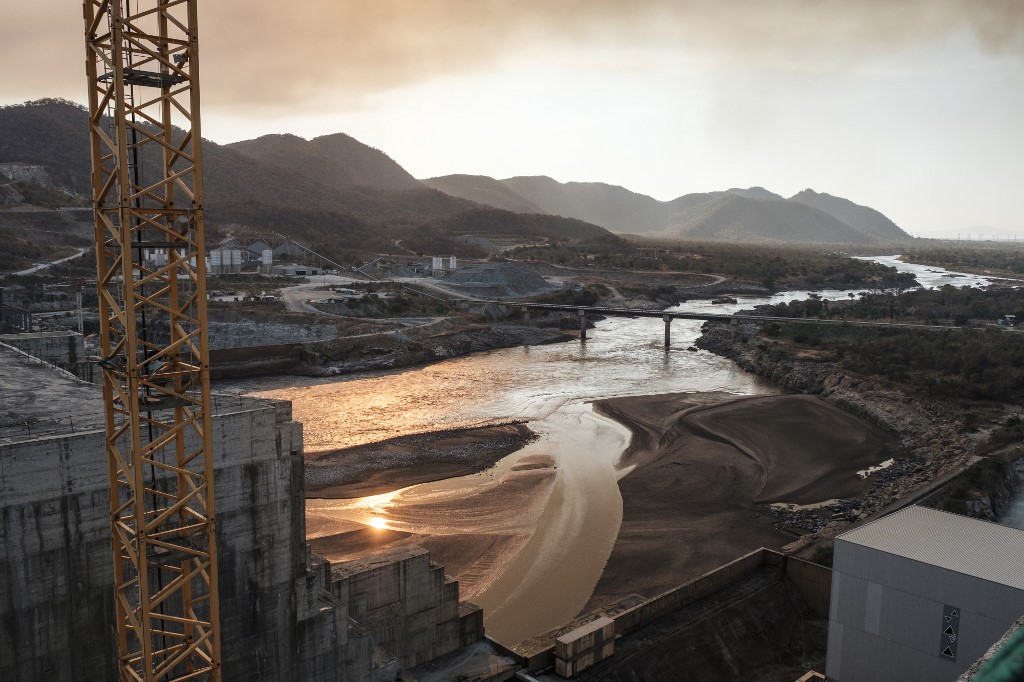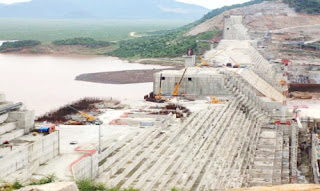Sudan-Ethiopia border tensions escalate despite government efforts
Diplomatic efforts to diffuse a security crisis on the border between Sudan and Ethiopia have been ongoing, but the situation on the ground has escalated in recent days, with Sudanese troops and Ethiopian militias assembling forces in the area.
The crisis adds more pressure on Sudan’s transitional military-civilian government, as it struggles to establish democracy and the rule of law in the country, while also dealing with the coronavirus outbreak and a weak healthcare system.
Sudanese political parties and revolutionary forces, who have a terse relationship with the military establishment, have announced their support to the army as it deals with tensionson the border area of Gadaref state.
Some activists, however, believe the army is trying to whitewash its image and take advantage of nationalist sentiment.
Ethiopian groups have been trespassing into Sudan’s al-Fashga agricultural area to cultivate crops for decades, resulting in tensions with local residents.
Deposed president Omar al-Bashir had long tolerated the transgression, but the current transitional government in Khartoum are trying to stop the practice and expel the groups.
The security situation escalated last week, when suspected Ethiopian militias killed at least one Sudanese army officer and a child in a cross-border attack on Barakat Nourain in Gadaref. Three civilians and a Sudanese officer were wounded, according to Sudan’s military.
It was the first time that open clashes have taken place between Ethiopia and Sudan in 50 years, despite the fact that while the 1,600-km border had long been drawn, it has never been clearly demarcated since the independence of both countries.
The head of the Transitional Military Council (TMC), General Abdel-Fattah al-Burhan, visited the border area after the attack, and Khartoum has since deployed more troops to the region to stop infiltrations.
Some observers believe that the crisis might be linked to Ethiopia’s Blue Nile dam dispute between Addis Ababa, Cairo and Khartoum, and that Egypt may have played a secret hand in the current escalation.
Meanwhile, a Sudanese analyst has warned that the crisis between Sudan and Ethiopia might lead to a repeat of two decades of deadly conflict between Ethiopia and Eritrea, which caused wider regional problems.
Escalation
Locals in Gadaref said that tensions picked up again in Barakat Nourain and other border villages, where recent clashes took place.
Ahmed Abu Zar, a resident of Barakat Nourain, told Middle East Eye that both sides are amassing their forces near the border, adding that Ethiopian militiamen (known as shifta) who were recently forced out by the Sudanese army have crossed back into Sudan.
“After a short period of respite from clashes, we saw that the Ethiopian militias have again crossed the borders and reached 15km inside Sudanese territories.
'We are confident that we were only defending ourselves and our people'
- Sudanese military source
“We are now seeing that the Ethiopian communities are massing their forces [along the border], but we are relying on our Sudanese armed forces to defend us,” he said.
Residents of Gadaref state have declared their support to the army.
A military source in Gadaref state said that the Sudanese army is practicing the maximum level of restraint to avoid escalation, adding that “we prefer peaceful solutions to the issues with our neighbours”.
He also said that military talks have already started in Khartoum to solve the border problem and finalise the issue of the border demarcation.
“The Ethiopian side has called for a joint investigation on what happened on the border and we are ready to do that as well," he said.
“We are confident that we were only defending ourselves and our people.”
Diplomatic talks have also taken place in Khartoum between Sudanese and Ethiopian officials in an effort to avoid further escalations in the coming days, a Sudanese diplomat told MEE on condition of anonymity because he was not authorised to speak to the media.
“Many diplomatic contacts have been made to calm the situation. [Sudanese] Prime Minister Abdalla Hamdok has even contacted his Ethiopian counterpart Abiy Ahmed, and they both agreed to slow the situation down," he said.

The Ethiopian government has said that the diplomatic route is the best way to overcome the crisis. The Ethiopian foreign ministry also called for a joint investigation conducted by the two militaries into the border incident.
"The ministry urges that the two countries should work together through existing military mechanisms to address and jointly investigate circumstances surrounding the incident,” the Ethiopian ministry said in a statement.
Nationalism
The rare clashes between the armies of Sudan and Ethiopia have attracted wide support to the Sudanese army among citizens, following long disputes with pro-democracy protesters calling for full civilian rule and accusing the army of being involved in the massacre of protesters in front of army headquarters on 3 June 2019.
The co-ruling coalition of Forces for Freedom and Change (FFC) has condemned the attacks by Ethiopian groups and commended the army’s role in defending the Sudanese territories.
“We believe that the old regime was irresponsible towards the sovereignty of the country, so we send our deep condolences to the families of the victims in the attack carried out by the Ethiopia militia of Shifta backed by the Ethiopian military," an FFC statement said.
“We urge the citizens to support our national army in its battle to defend the Sudanese territories.”
However, prominent Sudanese activist Ahmed Abdul-Gayoum said he believed that the Sudanese army is using the expected feelings of nationalism among people in order to improve its image and then consolidate its control over the political life in the country.
He told MEE that people’s sentiments have been misused by the armies of Arab Spring countries, such as Egypt, in order to undermine the demands of democratisation.
“The army wants to improve its bad reputation after the 3 June massacre and its failure to protect civilians.
“And in the face of increasing demands of army restructuring and a full civilian ruling, it used nationalism to attract support or even blackmail pro-democracy protesters with the guise of higher interests and national security matters,” Abdul-Ghayoum said.
The Nile
Meanwhile, some reports claim the border tension may have regional dynamics and causes playing out behind the scenes, suggesting that the race over the Blue Nile dam has become a threat to regional security.
The reports say that the Egyptian government has been working to remove Hamdok, as it believes that he is aligned with Addis Ababa’s mega project - the construction of a dam on Ethiopia’s Blue Nile, a tributary upstream from Egypt's White Nile. The dam channels water into first Sudan, and then Egypt.
Egypt has vehemently opposed Ethiopia's mega project, claiming it would reduce the river's flow and endanger Egypt's population, which depends on the river for 90 percent of its water supply.
The reports further alleged that the Sudanese transitional government has been divided over the dam, as the military component is backed by Egypt and the civilian component is led by Hamdok, who is considered close to Ethiopia.
But a source in the Sudanese Ministry of Irrigation has denied any alignment of the government with either Ethiopian or Egyptian agendas, adding that Sudan is only serving its interests regarding the dam.
“Although we are calling for peaceful and negotiable solution for the dam disputes between Egypt and Ethiopia, that doesn’t mean that we are neutral or that we are only serving as a mediation point," the source told MEE on condition of anonymity.
“We are serving the interest of Sudan as top priority, but we are using diplomacy to do that. This is our strategy on this issue, and we hide nothing regarding it.”
Traditional competition
Meanwhile, Sudanese political analyst Abdul-Galil Suleiman argued that the tension is more local than regional, noting that the traditional competition over the resources, including water and land, between the Sudanese and Ethiopian farmers and nomads is the main cause of the border tension.
Suleiman, however, warned that it may turn into a long-term conflict, much like the decades of war between Ethiopia and Eritrea.
'The contest over lands and resources is long-established - since the 1950s'
- Abdul-Galil Suleiman, analyst
“The contest over the lands and resources in al-Fashga is long-established, since the 1950s, however the issue was politicised after a failed assassination attempt on former Egyptian President Hosni Mubarak in Addis Ababa in 1995," he said.
The incident, Suleiman added, "has been used by both Egyptian and Ethiopian governments... to seize lands in Eastern Sudan, including Halaybe on the border with Egypt and al-Fashaga with Ethiopia.”
He further added that Ethiopia has officially recognised that al-Fashaga is Sudanese, but the Ethiopian communities on the borders have not.
“The only solution to this border problem is employing traditional and peaceful means of reconciliation and settlement between the communities on both sides of the border, backed by the two governments,” he said.
Source: Middle East Eye






Comments
Post a Comment